Double Bass Learning Methods
The best way to learn the Double Bass
As part of our ‘Beginner’s Guide To Learning The Double Bass’ collection, this specific part gives you the knowhow to decide which way of learning is going to be best for you as well as your individual situation.
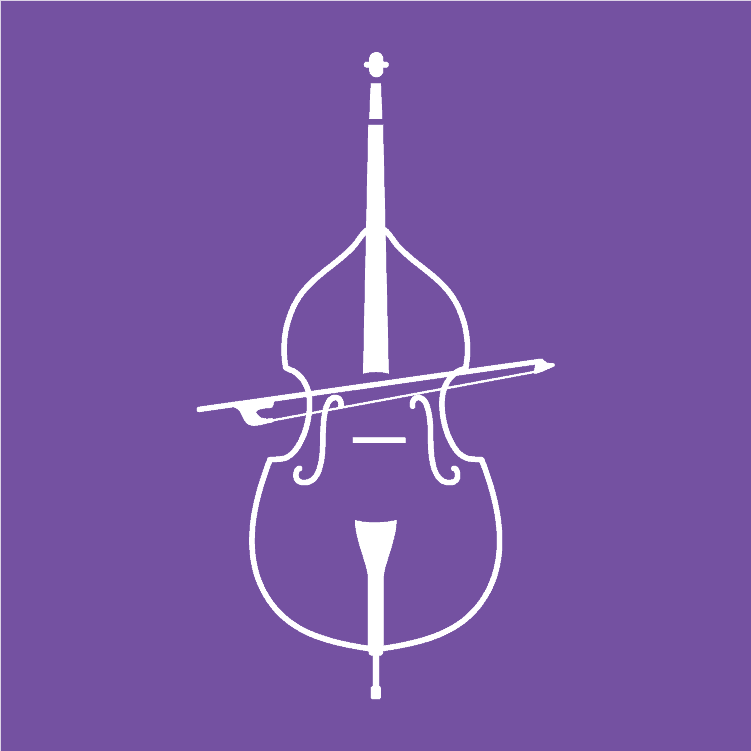
Most important options for Double Bass Learning Methods
All individuals learn in different ways. Many people can remember telephone numbers immediately, whilst other people might not even have the ability to read. We’re all special and different. It’s for this reason that we can confidently point out that there isn’t one perfect way of learning a musical instrument.
The four critical learning methods that exist are:
- Traditional, face-to-face, one-to-one learning
- Traditional, face-to-face, group lessons
- Video Tutorials
- Apps
If you’re a beginner or have been playing for years, one of those four options will be perfect for you. It’s just a matter of finding out which be is most suitable.
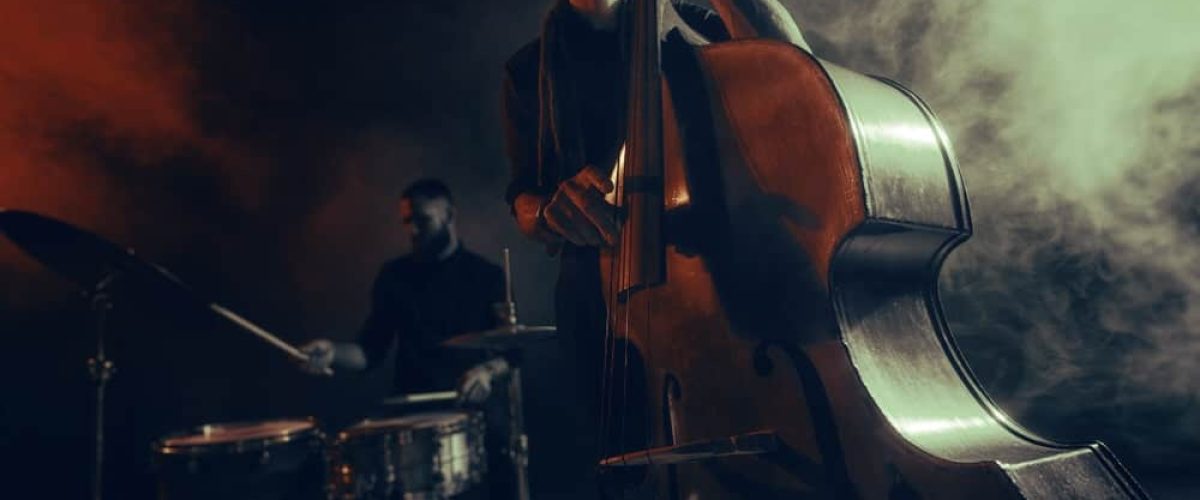
Traditional, face-to-face, one-to-one lessons
This is still the best-known method of teaching the double bass, and individual private tuition can be an incredibly rewarding experience for both teacher and pupil. In the right circumstances, it offers an opportunity not only to develop your musical skills to the highest level possible but also to enrich your entire life.
I have been fortunate to have studied the double bass with several outstanding musicians since childhood, but there is much more to a good teacher than pure musicianship. In addition to their own excellence as double bassists, the most successful teachers I worked with were flexible in their approach and willing to take the time to tailor their tuition to suit my own learning style, needs, and aspirations.
I spent five very happy years studying with Tony Hougham, who is Principal Double Bass of the Orchestra of the Royal Opera House Covent Garden. However, despite his own incredible professional experience, what kept me coming back for lessons (a four-hour round trip!) was the fact that he cared demonstrably about me and my playing, and understood the best way to help me develop my own skills and achieve my goals.
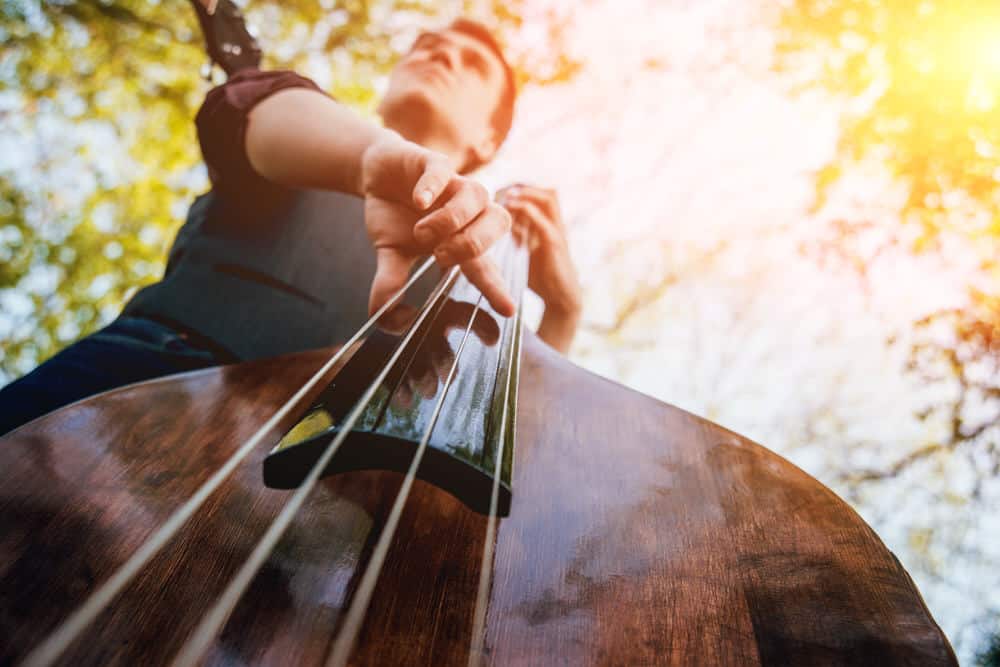
Unfortunately, anyone can set themselves up as an instrumental teacher and take money from people with no qualifications at all. A prospective double bass teacher should always be happy to talk to you in detail about their professional training, teaching and/or performing experience, and provide references or testimonials from employers or former pupils if you request them.
In addition, any good teacher should be willing to offer a “consultation” lesson, in which you can mutually assess whether or not they are a good fit for your needs without obligation to continue further. Don’t be afraid to undertake this process with more than one teacher before reaching a decision. Individual lessons are also increasingly being given online through platforms such as Zoom and Skype, which may relieve some of the logistics around scheduling and travel, although it can make some specific technical points harder to absorb.
You need to find a really experienced teacher who you connect with and feel comfortable around. Who understands you and your needs. Who makes you laugh, and who you look forward to going to see every week. If you can find this person, you have then achieved something most people fail at.
But where to start looking for them? The best place to begin is a personal recommendation, and you may know someone in your area who has learned double bass in the past, or who has children taking lessons. There are also several websites where teachers advertise, such as musicteachers.co.uk and firsttutors.com.
Being inspired by your teacher is the magic dust that will keep you learning for years to come. Even now, I can sometimes hear Tony’s advice in my head when I’m at work as I decide how to approach a tricky passage (or occasionally a tricky person!). Most musicians you will meet will be able to tell you about a teacher who transformed their lives for the better, as he did mine.
Out of all the options on this page, this is the most expensive. But as usual with things in life, you tend to get what you pay for…
PROS
- Personalised feedback
- Lessons Adapted To Your Style Of Learning
- The Most Efficient Way Of Learning
- Can Be The Most Inspiring Option
CONS
- Expensive
- Difficult Scheduling
- Finding Right Teacher Is Difficult
- Requires You To Travel
Traditional, face-to-face, Group lessons
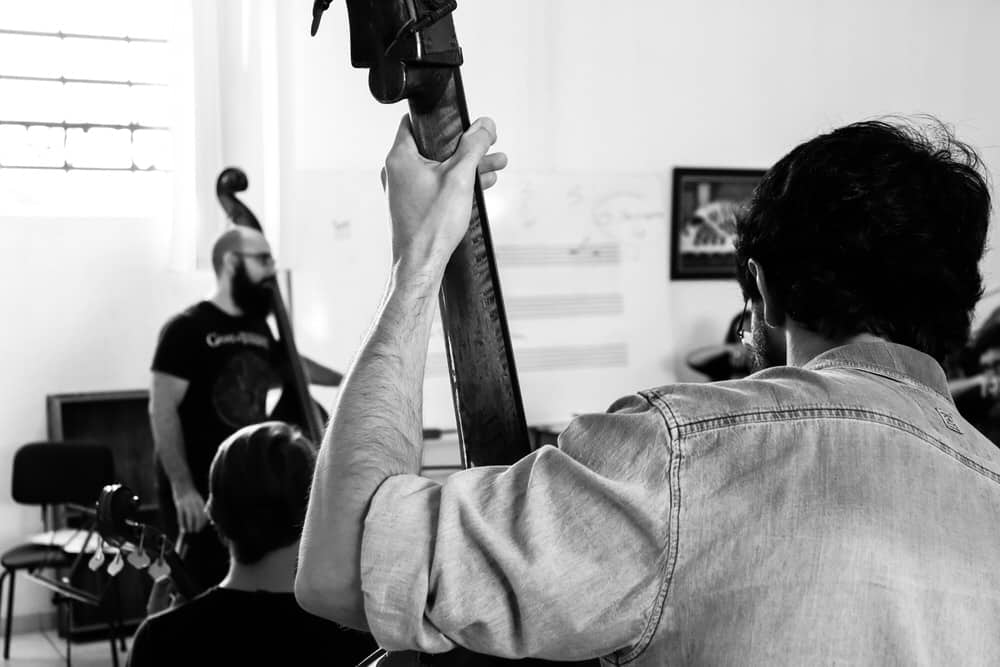
Depending on where you live, you may be able to find group lessons. The ethos is similar to one-to-one sessions, but the cost is much lower as the teacher is dividing their time between all the pupils.
Many orchestral musicians, including double bass players, start playing in group lessons- usually of between two and four pupils. I regularly teach groups of learners of all ages, and the sessions are enjoyed by all. Many beginners find the atmosphere in group sessions less intense than in individual tuition, and this relaxed environment is much more conducive to progress in the initial stages of learning.
Learning alongside your peers also enables you to see how other people respond to the challenges we all face when playing our instruments, and to receive feedback and input from more people than just your teacher. I love to see the pupils in my group sessions discuss what they enjoyed about each other’s playing!
Group double bass lessons will also give you valuable ensemble skills. Playing with other people is very different to playing alone, and in a group lesson, a skilful teacher will be able to incorporate both of these skill sets into your learning from day one.
However, as you progress with your double bass playing, you will almost inevitably find yourself wanting more individual attention as you grow more confident and fluent. For this reason, most of my students who start off in groups will move to individual lessons after a year or two.
PROS
- Personalised feedback
- Can Be Fun Learning In A Group
- Cheaper Than One-2-One Lessons
CONS
- Difficult Scheduling
- Limited Choice Of Teacher
- You'll Learn At The Speed Of The Group
- Sharing The Teacher With Others
- Requires You To Travel
Video Tutorials
Free Courses
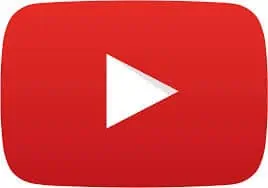
YouTube is definitely the most significant source of video lessons on earth. There is absolutely no more effective place than YouTube to discover instructional material for double bass. Because of the sheer volume of choices on the platform, it’s not possible to review them all.
Like many things in daily life, 95% of the material you’ll come across is pretty terrible, with the remaining 5% being absolutely magnificent. The key is to discover the 5%, and that can be easier said than done.
In my opinion, the best resources out there can be found at Discover Double Bass which is an amazing platform offering a massive selection of video courses in a wide range of techniques and genres, from beginners to advanced levels.
Lauren Pierce also offers an extensive selection of classical tutorials on her YouTube channel, along with several videos of her inspirational concert performances.
On the contemporary side, my friend and colleague Zoltan Dekany has put together Zoltan’s Bass Lounge featuring high-quality tutorials on both acoustic and upright bass.
One word of warning: as you develop your skills and encounter more sophisticated technical and musical challenges, you may end up with more questions than answers! At which point we would strongly recommend having real-life human teaching you, in the same room.
For those who don’t wish to spend any money, and therefore are prepared to commit enough time while seeking for top quality content that motivates you, then there is no greater place.
Paid Courses
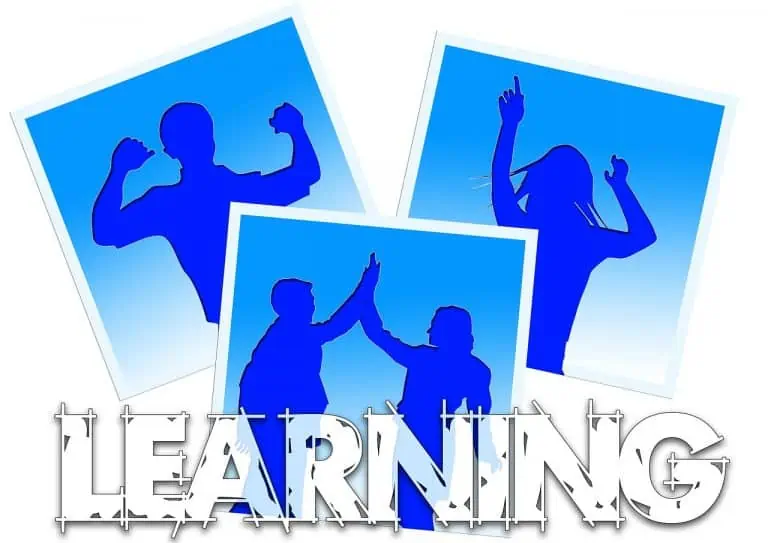
You will find 100’s of paid double bass programs on the internet. Once again, just like YouTube, it’s impossible to check every one of them. Suffice to say, two of the most popular platforms are:

The Signature Sounds of Adam Ben Ezra: a four hour, 60 lesson course for $99 covering improvisation and the particular effects Adam uses in his music.
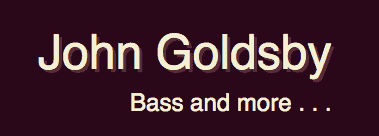
John Goldsby, Jazz Bass volumes 1 and 2: a comprehensive course in jazz double bass playing from beginner to advanced level, $99 each.
PROS
- Low Cost or Free
- Huge Amount of Content
- Learn Whenever You Want
- No Travelling To Lessons
- Great For Popular Material
CONS
- So Much Choice It's Difficult To Find Great Content
- Quality of Content Is Questionable
- Not Great For Classical Playing
About the Author
Hugh Richardson
Hugh Richardson is a bass player and writer currently based in London, UK. Recently, he has been busy playing on West End shows and tours including Bat Out Of Hell The Musical, Kinky Boots and Priscilla. When he's not performing, he is probably teaching or spending time perfecting his table tennis game!
You can find out more about Hugh from www.onlinebassguitar.com
Other posts by this author
You can find out more about Hugh from www.onlinebassguitar.com
Zoom Lessons

If you’re looking for that one-to-one setup, but don’t want to trek around to a teachers house every week, then online lessons can work really well.
There are A LOT of companies out there that do lessons over Zoom, so you have to be ultra careful the quality is up to scratch. But the service we have found that has consistently great feedback is www.lessonwithyou.com. We like that they offer a half-hour lesson completely for free so you can try out the service and that they offer flexible scheduling with no contracts. They have teachers from Julliard, Berkeley, and Johns Hopkins – so the standard is high. Lastly, we LOVE that they don’t as for your credit card details for the trial lesson.

Double Bass Apps

We learn best when teaching is tailored to our personal needs, and the idea behind music tuition apps is that they function as a hybrid of standard videos and a real-life teacher, adjusting their teaching based on your response to the app.
Unfortunately at the present time, there are no double bass apps that offer this kind of reciprocal teaching. However, there are plenty of apps out there to support your progress in conjunction with one of the other teaching methods described above:
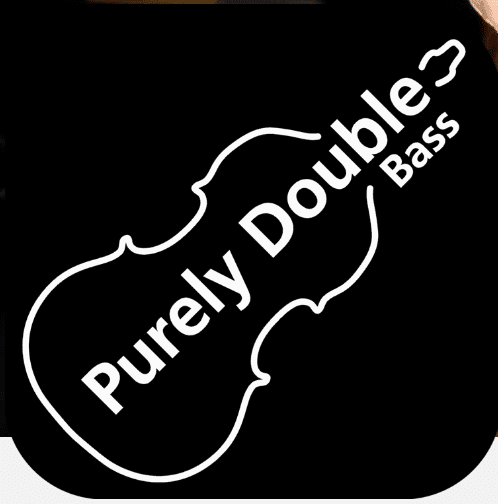
PURELY DOUBLE BASS
Purely Double Bass offers a choice of 70 play-along routines from beginner to advanced, including scales, arpeggios, and rhythm accompaniments. It has a choice of notations, call-and-response, or metronome support enabling you to vary the tempo of the exercises and group them into schedules that best suit you as you grow in confidence.
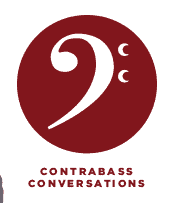
CONTRABASS CONVERSATIONS
Contrabass Conversations is the app for Jason Heath’s famous podcast, which provides interviews, performances and double bass news and resources for everyone with an interest in the instrument.
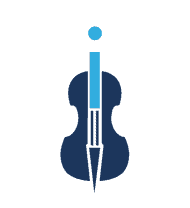
iDOUBLE BASS
iDoubleBass is designed by Micah Howard of the Pittsburgh Symphony Orchestra and provides video, photographic, and textual resources to support double bass techniques for students from beginner to an advanced level.
PROS
- Best Cost Effective/Quality Ratio
- Can React To Your Level Of Learning
- Great For Popular Material
- No Travelling To Lessons
CONS
- No Personal Feedback On Your Playing
- Not Great For Classical Playing
Double Bass Learning Methods - Summary
Let’s keep things easy…
If you want to play classical music, either as a specialism or in conjunction with other genres, face-to-face tuition from a dedicated teacher is by far the best option. This can take the form of individual or group lessons, delivered in person or online, and a wealth of online content exists in form of both videos and apps that can be used to supplement this learning.
If you want to focus exclusively on jazz or popular styles, with careful research you may find online content that enables you to work without a teacher and make a positive start on the double bass. However, as you progress you may wish to seek more specialised advice than is possible via these platforms.
Hopefully, this will help you decide what method of learning will be best for you!
Books, Cool gadgets & Gizmos
Will you be missing out? Many of us get swamped with messages, but I can promise there is one you’ll not want to overlook; our 4 Feature Friday e-mail.
Every Friday, I’ll send a short email in order to treat you to several of the amazing things which I’ve recently found.
It could literally be about anything at all related to music. It’ll end up in the e-mail if I believe you’ll think its great!
Touring the whole world being a musician means I get to enjoy stuff you wouldn’t believe, and revealing it to you makes a fabulous ending to the week. Sign up free of charge directly below.
Read the next post in this series:




